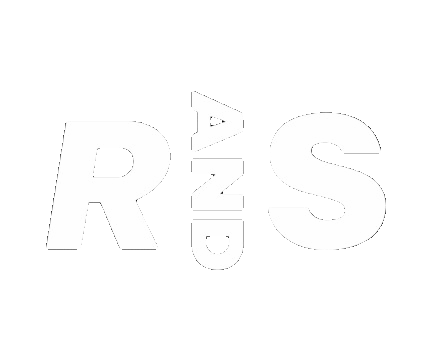3 minute read
A battered old car was driving a horse float along a dusty road to a race meeting in western New South Wales and unbeknownst to them Col Hodges was in the car following.
t's a moment the legendary race caller makes a point of recalling.
He knew which horse he was trailing and wondered out loud to his travelling companion why the connections persevered when the results clearly weren't coming.
"I said 'I can't believe why people keep dragging this horse around, I don't know if it is ever going to win a race','' Hodges said.
"The person with me said I was forgetting one vital thing.
"They said 'when you get to the races you have a look at that horse. They're probably the best presented horse on the track, the person has been grooming that horse and they love that horse, they love racing, it's their hobby and they'll be happy if the jockey gets off and says 'yeah it wasn't a bad run'.
"They told me 'don't ever doubt those people, because they are the ones who keep you in a job'.''
And it's a job Hodges dearly loves. He's been the voice of racing in western New South Wales forever, it seems, and on April 10 it marks 50 years since he called his first full race meeting.
It was a picnic meeting at Fifield, a place of 'one pub and a few scattered houses' between Trundle and Tullamore, on Easter Saturday. It was a dirt track, there were fields of between six
and 10 to describe and around 500 people were in attendance.
One of them yelled at the young Colin Hodges. He's never forgotten that mild piece of verbal abuse and it shaped the way he calls to this day.
"In those days a lot of tracks didn't have photo finishes,'' Hodges said.
"Someone came out of the crowd, it was a close finish, and some lady yelled out 'you're trying to influence the judge you young fellow'.
"I went to a lot of meetings that didn't have photo finish cameras so that's where I learned to be pretty diplomatic in photo finishes.
"If I'm sure I'll call it but there's that many different angles, I call at about 30-35 race tracks, and some tracks you're right on the line but unless I'm pretty sure I'll just say it's between this horse and that horse.
"I'll have a go if I know the angle of the track and I'm confident but I don't like letting people down by taking a guess when I'm at a bad angle just for my own glory."
That meeting at Fifield wasn't the first time Hodges stepped into the commentary position. His first taste of race calling came in October 1970 when he called one race at Goolagong, between Forbes and Cowra, from the back of a truck having been discovered by local caller Bobby Gunn.
Racing wasn't exactly in his blood as he grew up around Forbes, he was more adept at shearing sheep and that gig lasted well into his calling career, but it was never too far away.
"I hadn't been to a race meeting until I was 14 and I went with my mum and dad, who didn't go to the races regularly, to Bedgerebong,'' he said.
"I watched the horses come roaring past and I was that excited. I used to ride horses out on the farm and I started racing them in the paddock and calling them.
"I didn't just say I wanted to be a race caller one day. I was doing a few phantom calls mucking around at school and Bobby Gunn heard I was interested. I'd practice into a tape recorder and Bobby would listen and that's how it started."
When you've been doing anything for 50 years naturally there are significant moments.
Hodges has called greyhounds, trots, camel races, he called the once a year thoroughbred meeting in Vanuatu for 14 years from 1997 – 'they were rough and ready, out in the jungle, everything was made of bamboo. They'd get about 6000 people there. It was a lot of fun' – and he's dabbled in bookmaking and journalism.
But the famous triple dead heat at Cowra, also in 1997, always jumps into the front of Col's mind. Why wouldn't it?
Sleepers (ridden by Dar Lunn), Sir Laucrest (Tracey Bartley and Churning (Mark Galea) hit the line locked together – in the moment he actually exclaimed 'this might be a triple dead heat' – and for the first time in NSW and only the fourth in Australia the judge couldn't split three horses.
David Whitney was the judge that day and Aaron Morton operated the photo finish camera. Hodges says watching it all unfold was extraordinary.
"Shane Cullen was the head steward and he didn't declare correct weight for getting on towards half an hour,'' Hodges said.
"He called for print after print after print after print, magnifying glasses, he didn't want to declare a triple dead heat unless he was absolutely sure.
"They took it down to a picture theatre at Orange the next day and blew it up huge and there was no doubt it was a triple dead heat.
"When you think about all the races in Australia that are run each year it's remarkable there's only ever been four. I still have the photo on my wall."
Technology has changed not only the way racing is received but how it operates. A good case in point is the 'Beaten Stakes'.
It used to be a regular feature of race meetings and as course broadcaster Hodges had an important role to play. Imagine if this scenario were to play out in 2021.
"This was before everything was computerised, I used to have get up on the microphone after about the fourth race and call for nominations for a Beaten Stakes,'' he said.
"After race five, because they made sure the horses had an hour off after they'd raced, anything that didn't win in the first four races could nominate.
"There was prizemoney and betting, there'd be blank page in the race book and a fellow on the blackboard would put up the field and I'd read out the starters and riders and barrier draw."
Hodges is an unabashed fan of the Country Championships concept, introduced by Racing NSW in 2015, and has the honour of calling the qualifiers in the Central West and Western regions.
He often overhears people talking about the horse they have for next year's Country Championships at race meetings, illustrating how much it has cut into the psyche of country participants.
"I think people realise it's a life changer for some of the people involved,'' he said.
"I don't ever envy people who have money. Sometimes the Everest and different races like that aren't life changers but for people who win the Country Championships it can really make a trainer or a jockey and it could mean an owner out in the country could pay their mortgage off.
"It's a real game changer, that's what I love about it."
Four years ago, in 2017, Hodges featured in the Queen's Birthday honours, earning a Medal Of The Order of Australia for his many years of service to the racing industry and country communities.
At 71, it's not unkind to say that he's nearing the end of his illustrious broadcasting career.
While the game has changed with eyes seemingly on you all the time – Hodges is well aware of what happens to race callers, and jockeys, on social media – he feels in recent years he's been calling with a renewed level of concentration.
And you'd be surprised at how high he sets the bar for himself. It doesn't matter to Col Hodges that he's been calling for 50 years, that doesn't earn him any favours in the eye of the punter, as he says it's incumbent on him to be as accurate as possible.
Go inside the broadcast box as Col Hodges describes the race named in his honour, at Warren, on Saturday to mark 50 years since he called his first race meeting. @tabcomau @7horseracing pic.twitter.com/WA606O1aEy
— Racing NSW (@racing_nsw) April 10, 2021
"It's a lot of pressure. I don't mind admitting it,'' he said.
"When I was just calling to people on course at a lot of the tracks I'd go down and have a yarn with them if I've made a bit of a mistake.
"I've come to realise there's a lot more pressure to get it right. No race callers are computers, there's always going to be mistakes, and the best you can do is try to keep them to a minimum.
"I'll be the same as most race callers, it takes you a fair while to get over it. You can have sleepless nights thinking about it."
Hodges is grateful for the support of the many clubs in NSW that have been with him through the years and when he does retire he wants to do it on his own terms.
To measure when that time is right he has people around him he trusts to tap him on the shoulder and say 'Col, you're starting to slip mate'.
"I might go out there and make a few mistakes but that's not going to make me retire,'' he said.
"You might do 20 meetings in a row and feel pretty satisfied then you have a couple of meetings and you make a few minor mistakes but in your mind you know they're mistakes.
"I've been a survivor. People have come and gone in this industry, I've had a lot of good supporters among the race clubs, and Sky Channel, who have stuck by me.
"I'm just a cog in the wheel, I'm happy to play my little part in racing and I hope I've made a few people happy."








